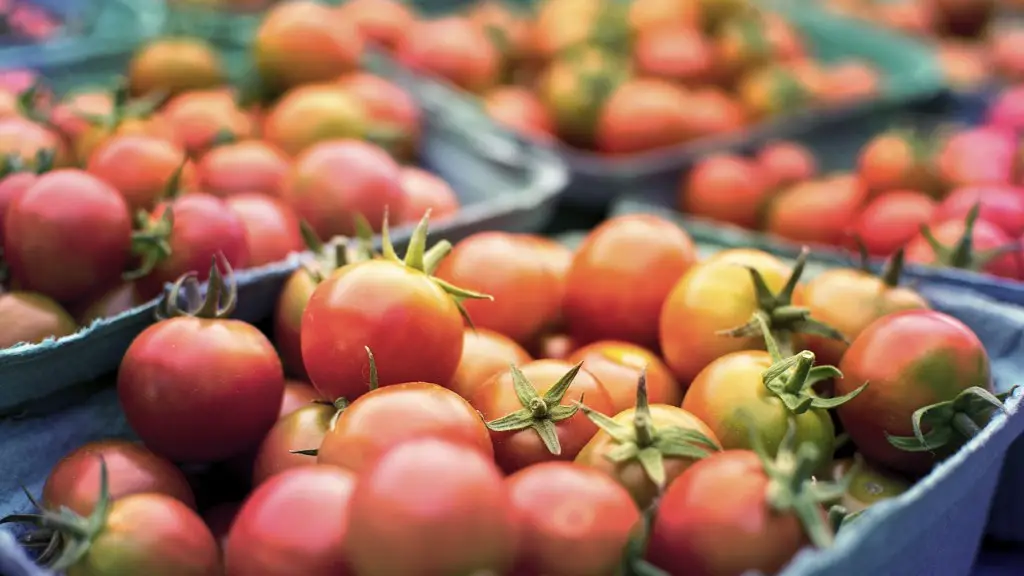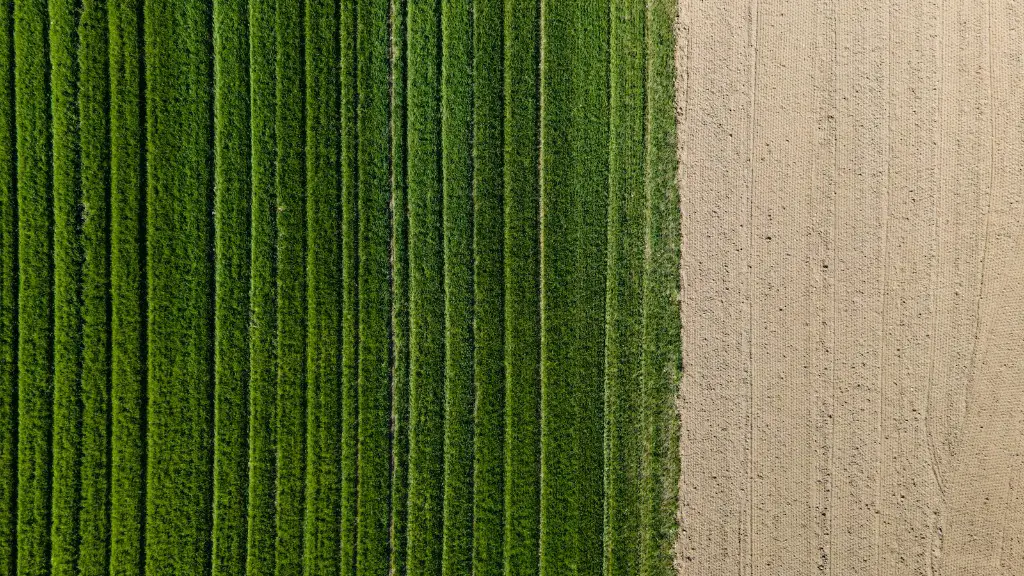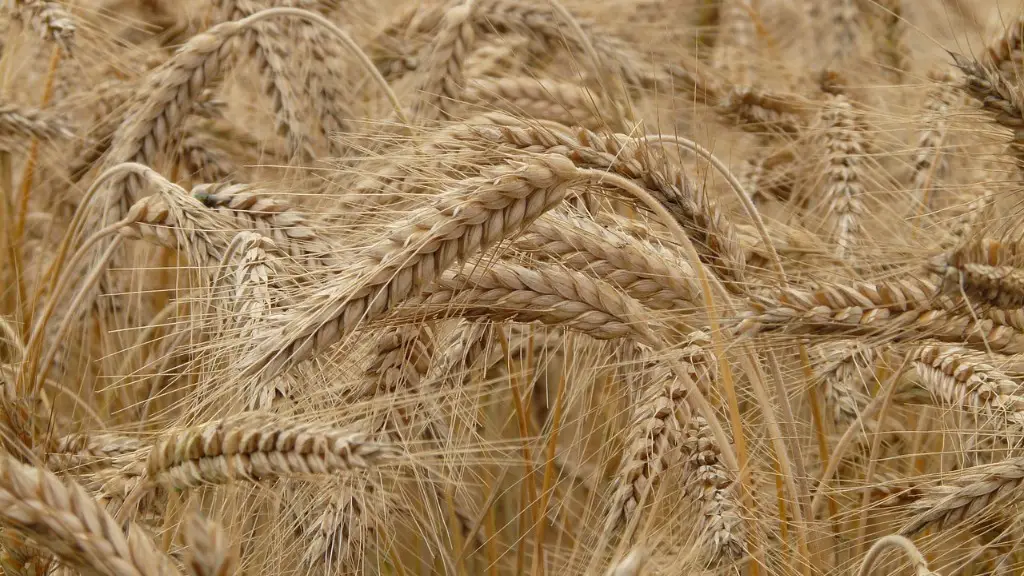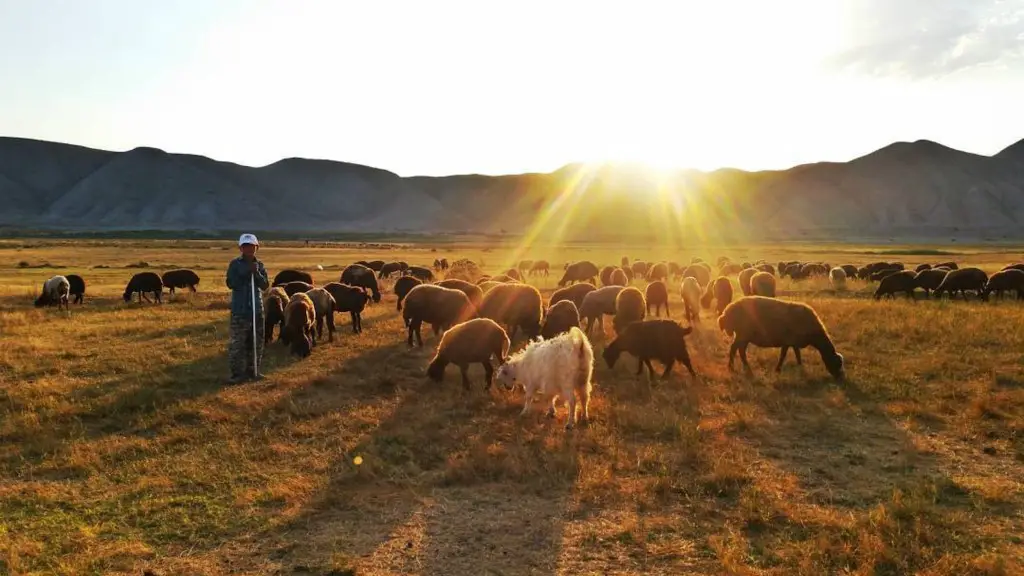Organic agriculture has the potential to sustainably feed the world in 2050, as it offers myriad benefits over traditional farming methods. These include reduced reliance on chemical inputs, more efficient use of resources, and greater protection of soil and water quality. Organic agriculture also provides increased biodiversity, which is essential for ecosystem health and resilience. However, organic farming systems face certain constraints, such as higher production costs and lower yields compared to their conventional counterparts. Nevertheless, these constraints have been diminished by the development of organic farming methods and the adoption of innovative management strategies.
This means that organic agriculture can provide a viable alternative to conventional farming in 2050. It is also important to note that organic farming is not only economically viable, but also ecologically sustainable. Organic systems are less dependent on outside inputs as they rely on such techniques as crop rotation, cover cropping, and composting to maintain soil fertility and health. They also encourage biodiversity by promoting the increasing use of native species for forage and crop production. Moreover, organic agriculture is resilient to the impacts of climate change, as its systems are well adapted to local conditions.
However, for organic systems to be able to feed the world in 2050, there is a need for systemic changes such as improved storage and preservation techniques, improved pricing and market access structures, increased investment in research and development, and greater public acceptance of organic farming systems. These changes could lead to increased yields, reduced input costs, and improved food security and health. Moreover, these steps could help farmers transition to organic agriculture and create jobs and reduce poverty in rural communities.
In conclusion, while organic agriculture is faced with certain constraints and obstacles, it can still be a viable, sustainable option to feed the world in 2050. In order to achieve this goal, it is important to address issues related to market access, yields, and input costs, as well as create public awareness and acceptance of organic farming systems. With the right incentives, organic agriculture can be a major source of food in 2050.
Government Support
In order for organic agriculture to be a major source of food in 2050, governmental support is necessary and essential. Governments need to create policies that incentivize and promote organic practices, such as direct subsidies for organic farmers, consumer education campaigns, market access and price support programs. In addition, governments need to ensure that farmers have access to the resources and technology necessary to successful transition to organic agriculture.
Moreover, governments may have to create a multilateral framework that encourages collaboration between various stakeholders to promote sustainable agriculture. Additionally, they need to set up systems that identify, measure, and mitigate the risks associated with transitioning from conventional to organic agriculture. All of these steps can be part of strategy to create a more equitable balance between food production and environmental protection.
Finally, governments need to support an increase in research, innovation, and investment in organic agriculture. This could include providing financial incentives for universities, research institutions, and private foundations to study the benefits and drawbacks of organic farming systems and develop new environmentally-sound agricultural methods to improve yields and protect ecosystems. These efforts need to be matched with sufficient resources to ensure that quality information is available to the public.
Supporting Infrastructure
For organic agriculture to be truly successful in sustaining global food security in 2050, it is essential to create supporting infrastructure. This includes post-harvest processing and storage solutions, appropriate transportation systems, and guaranteed access to markets. In addition, there needs to be comprehensive training programs to educate both farmers and consumers on organic agricultural techniques, allowing farmers to improve their understanding of organic production methods while providing consumers with access to reliable information about organic products.
Furthermore, engaging with businesses can create opportunities for farmers that may be interested in transitioning to organic production. This can involve collaboration between farmers and companies to develop new organic products and methods of marketing, connecting farmers with retailers, and providing support for businesses seeking to increase their organic product inventory. Finally, it is essential to ensure that a financially viable organic supply chain network is in place to enable farmers to receive fair wages for their organic products.
International Cooperation
At an international level, it is important to increase international collaboration and dialogue to help the world make the transition to organic agriculture. This should include cooperation between governments, academic institutions, farmers, and global organizations. Such collaboration will help identify and resolve any global food security issues that may arise in the transition to organic agriculture, as well as develop and support projects that may help incentivize farmers to transition to organic production.
In addition, it is essential to develop strategies to create a global network of organic agriculture systems. This could involve sharing information on the successes, challenges, and opportunities of organic farming systems across the globe, creating global certification standards and regulations specific to organic agriculture, and respecting the local customs and cultures that may be affected by this transition. All of these elements can form the basis of an international dialogue around organic agriculture and create a more consistent and effective approach to global organic food production.
Moreover, global research and innovation can be an essential component of transitioning to organic agriculture at an international scale. This can involve increased investment in research and development, support for technology transfer and innovation, and global cooperation on data collection, analysis, and sharing. All of this is essential for making organic agriculture the primary source of global food production in 2050.
Financing and Education
In order to make organic agriculture a viable option to sustainably feed the world in 2050, investments are required to provide adequate financing, training, and education. Financial incentives and subsidies can be used to cover the upfront costs of transitioning to organic agriculture, support farmers and businesses needing assistance, and minimize the burden of economic risk in order to promote growth in the organic sector. This can be supported by public and private investment through grants, loan guarantees, and other sources.
Having access to training and information can be pivotal in making the transition to organic agriculture. To achieve this goal, farmers needs to have the opportunity to learn new techniques and understand the benefits of organic production systems. This can include technical training, workshops, and certification in organic production, as well as programs for connecting farmers with mentors, networks, and other resources. Additionally, resources need to be presented in a format that is culturally relevant and easy to understand.
Finally, public education campaigns can play a key role in the successful shift to organic agriculture. These campaigns can help to inform the public about the benefits of organic agriculture, create understanding and acceptance of organic systems, and effectively communicate to a large audience the importance of this transition. This can include initiatives such as marketing campaigns, media outreach, and the use of digital tools to better reach and engage with consumers.



